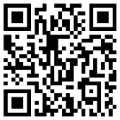Boosting Motivation with 3D E-Modules: Discovery Learning for Vocational IT Students
Abstract
PISA (Program for International Student Assessment) scores over the past 20 years show that many Indonesian students are still unable to understand simple reading or basic concepts in certain subjects. Integrating technology with education is the main focus to eliminate the existing gap both in terms of recognition and utilization of the abilities of learners. Electronic modules (e-modules) are one of the alternatives that can be used to deepen understanding of the material and increase student motivation in learning. This research aims to develop a flipbook-based e-module equipped with 3D models containing discovery learning stages as an effort to increase the learning motivation of grade X students, especially in the subject of basics of computer network engineering and telecommunications elements of technological developments in the field of computer network engineering and telecommunications. Research and development conducted using the Hannafin and Peck model with stages including (1) needs analysis, (2) design, and (3) development and implementation where each stage is accompanied by evaluation and revision. This research resulted in a media validation test value of 95.50% or very feasible and the material expert validation test resulted in a value of 97.20% or very feasible. The product trial stage was carried out at SMK Negeri 8 Malang with the results of a small group trial of 89.93% or very feasible and a large group trial of 91.72% or very feasible. Measurement of student learning motivation obtained a gain score of 0.63 or a moderate increase category, from 72.99% in the high category to 90.10% in the very high category.
Full Text:
PDFReferences
H. Budiman, “Peran Teknologi Informasi dan Komunikasi dalam Pendidikan,” Al-Tadzkiyyah J. Pendidik. Islam, vol. 8, no. I, pp. 31–43, 2017, doi: 10.24042/atjpi.v8i1.2095.
R. Rahayu, S. Iskandar, and Y. Abidin, “Inovasi Pembelajaran Abad 21 Dan Penerapannya Di Indonesia Restu,” J. Basicedu, vol. 6, no. 2, pp. 2099–2104, 2022, doi: 10.31004/basicedu.v6i2.2082.
Y. Makdori, “Nadiem Makarim: Indonesia Alami Krisis Pembelajaran dalam 20 Tahun Terakhir,” Liputan 6, Feb. 11, 2022. https://www.liputan6.com/news/read/4884471/nadiem-makarim-indonesia-alami-krisis-pembelajaran-dalam-20-tahun-terakhir (accessed Feb. 01, 2023).
BSKAP, “Capaian Pembelajaran pada Pendidikan Anak Usia Dini, Jenjang Pendidikan Dasar, dan Jenjang Pendidikan Menengah pada Kurikulum Merdeka,” in Kemendikbudristek, 2022, pp. 1–384, [Online]. Available: https://kurikulum.kemdikbud.go.id/wp-content/unduhan/CP_2022.pdf.
R. E. Simamora and S. Saragih, “Improving Students ’ Mathematical Problem Solving Ability and Self-Efficacy through Guided Discovery Learning in Local Culture Context,” Int. Electron. J. Math. Educ., vol. 14, no. 1, pp. 61–72, 2019, doi: 10.12973/iejme/3966.
W. P. Sari and M. Montessori, “Meningkatkan Keterampilan Berpikir Kreatif Siswa Sekolah Dasar Menggunakan Modul Pembelajaran Tematik,” J. Basicedu, vol. 5, no. 6, pp. 5275–5279, 2021, doi: 10.31004/basicedu.v5i6.1527.
H. Agussalim, M. Muharram, and M. Danial, “Pengembangan Modul Pembelajaran Kimia Berbentuk Komik Berbasis Augmented Reality pada Materi Pokok Ikatan Kimia,” Chem. Educ. Rev., vol. 4, no. 2, pp. 121–132, 2021, doi: 10.26858/cer.v4i2.13315.
D. Handayani, Y. A. S. Anwar, E. Junaidi, and S. Hadisaputra, “Pengembangan Modul Pembelajaran Kimia Materi Asam Basa Berbasis Problem Based Learning (PBL) untuk Meningkatkan Motivasi Belajar Siswa,” Chem. Educ. Pract., vol. 5, no. 1, pp. 107–114, 2022, doi: 10.29303/cep.v5i1.2765.
N. S. Herawati and A. Muhtadi, “Pengembangan Modul Elektronik (E-Modul) Interaktif pada Mata Pelajaran Kimia Kelas XI SMA,” J. Inov. Teknol. Pendidik., vol. 5, no. 2, pp. 180–191, 2018, doi: 10.21831/jitp.v5i2.15424.
M. Stefanus and J. F. Andry, “Pengembangan Aplikasi E-learning Berbasis Web Menggunakan Model Waterfall Pada SMK Strada 2 Jakarta,” J. Fasilkom, vol. 10, no. 1, pp. 1–10, 2020, doi: 10.37859/jf.v10i1.1878.
M. D. H. Rahiem, “Remaining motivated despite the limitations: University students’ learning propensity during the COVID-19 pandemic,” Child. Youth Serv. Rev., vol. 120, no. December 2020, p. 105802, 2021, doi: 10.1016/j.childyouth.2020.105802
DOI: http://dx.doi.org/10.17977/um010v6i22023p%25p
Refbacks
- There are currently no refbacks.
 | Letters in Information Technology Education (LITE) |

1.png)
1.png)
4.png)
1.png)
.png)
.png)

3.png)
1.png)
1.png)

3.jpg)